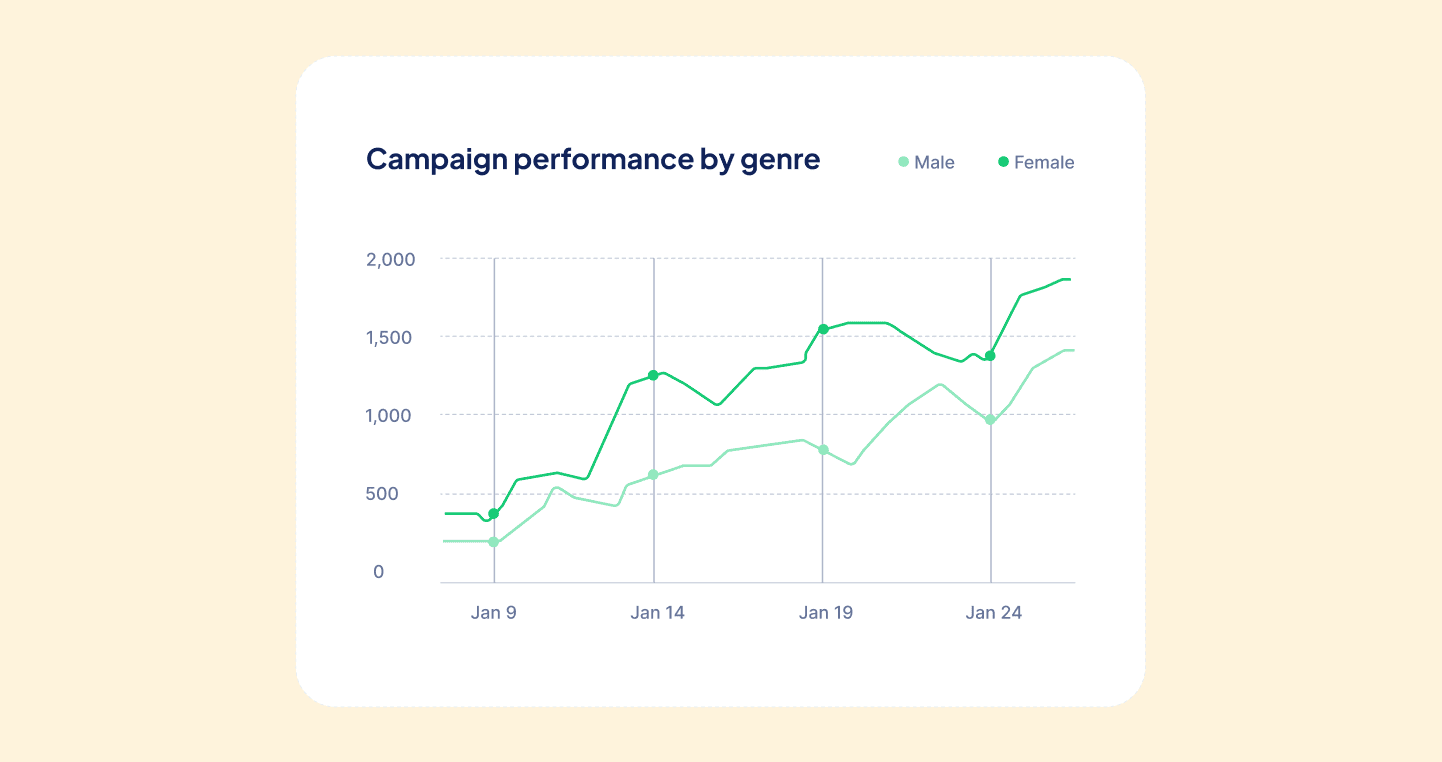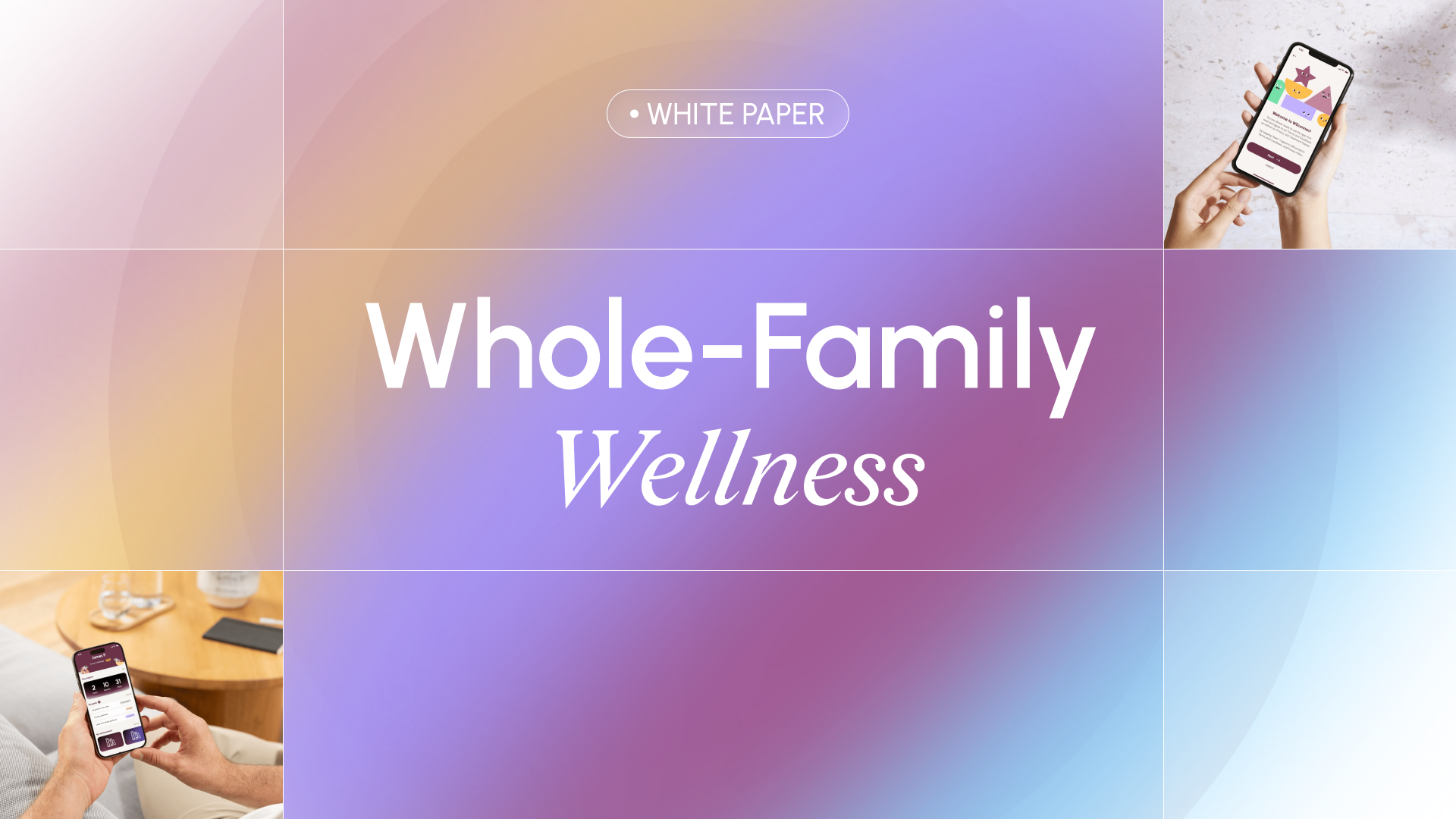How Family-Inclusive Digital Tools Like WEconnect Works Are Redefining Workplace Well-Being
Executive Summary
When someone struggles with mental health or substance use, their pain doesn't exist in isolation. It ripples through their household—touching partners, children, parents, and everyone who cares about them. These are the people who notice the sleepless nights, who adjust their own lives to provide support, who carry worry even when they're at work themselves.
Employees come to work as whole people. They are parents trying to help an anxious teenager. They are adult children supporting aging parents. They are spouses navigating a partner's depression. They are human beings embedded in family systems where well-being is shared, not individual.
More employers are beginning to understand what families have always known: we don't heal alone, and support that stops at the employee's door isn't really support at all. This white paper explores why organizations are shifting toward family-inclusive mental health solutions and how WEconnect Works provides accessible, confidential support that honors the reality of how people actually live. When families are supported, everyone benefits—including the workplace.
Why Family-Inclusive Mental Health Support Matters
Mental and emotional health concerns live in relationships. When one person is struggling, the people closest to them experience it too—through increased caregiving, emotional exhaustion, disrupted routines, and their own anxiety about someone they love. Yet most employer-sponsored wellness programs were designed as if employees exist apart from their families, leaving loved ones without resources during some of their most vulnerable moments.
The Human Reality
The statistics tell us what many already feel:
- 20% of U.S. adults live with a mental illness (National Alliance on Mental Illness, 2024)—meaning millions of family members are living alongside that reality, often without guidance or support
- 46% of employees experience burnout related to caregiving—for children, aging parents, or loved ones facing mental health or substance use challenges (American Psychological Association, 2023)
- 12.5% of children live in a household with at least one parent who has a substance use disorder (Substance Abuse and Mental Health Services Administration, 2023)—these children deserve support, not silence
- 50% of all mental health conditions begin by age 14, and 75% by age 24 (National Institute of Mental Health)—families are navigating these challenges during formative years when support matters most
- 69% of employers say supporting employees' families is a priority (Business Group on Health, 2024)—the intention is there, but often the infrastructure isn't
- 40% of working parents say family mental health challenges affect their job performance (Modern Health Report, 2023)—not because they care less about work, but because they care deeply about their families
These numbers represent real people trying to show up for their loved ones while also showing up for their jobs. They represent teenagers who need someone to talk to, partners who don't know how to help, and parents who are doing their best with limited resources.
What This Means for Workplaces
When employees carry the weight of supporting struggling family members without external help, something has to give. They may miss work more often or be physically present but mentally elsewhere. They may feel isolated, exhausted, or stretched too thin. Some leave jobs that don't acknowledge this part of their lives. Healthcare needs intensify when problems go unaddressed.
But the reason to support families isn't ultimately about productivity metrics or retention rates. It's about recognizing that the people who work for you are embedded in family systems that shape their daily experience. Supporting those systems is an extension of supporting the employee—it's seeing them as they actually are, not as isolated workers.
Why Families Can't Always Access the Help They Need
Even when mental health benefits exist, family members often can't access them. The barriers are real and deeply felt.
Common Obstacles
Stigma: Many people hesitate to seek help because they fear judgment—from others, from their community, sometimes from themselves. In some families and cultures, acknowledging mental health struggles carries additional weight.
Access: Traditional mental health care often means long wait times, limited providers who are accepting new patients, and logistical challenges like transportation or scheduling.
Cost: Therapy and behavioral health services can be prohibitively expensive, especially when insurance doesn't cover family members or when people don't have insurance at all.
Complexity: Navigating the healthcare system during a crisis can feel overwhelming and confusing, particularly for those unfamiliar with mental health resources.
Additionally, employer-provided programs often create their own barriers:
- They're available only to the employee, not to the spouse, partner, or dependent who also needs support
- They lack sufficient privacy for family members who need complete confidentiality
- They emphasize clinical pathways when what someone needs might be peer support, goal-setting, or practical coping tools
These structural limitations mean that many family members who need support never find it. WEconnect Works was designed with these real-world challenges in mind.
How WEconnect Works Supports the Entire Family
WEconnect Works is a mobile platform built on the belief that everyone deserves accessible, confidential, and personalized mental health support—regardless of whether they're the employee, the employee's teenager, their spouse, or their aging parent. The platform offers flexible, strengths-based tools that meet people where they are, without judgment and without requiring a diagnosis.
What the Platform Offers
Confidential and Accessible Support
- No formal diagnosis required—because seeking support shouldn't require being labeled first
- Available through a mobile app that anyone in the household can access on their own terms
- No need to navigate insurance or provider networks—just open the app and begin
Personalized, Strengths-Based Tools
Every person has different needs and goals. The platform allows each user to choose their own focus areas, such as:
- Getting better sleep and feeling less exhausted
- Managing stress and understanding emotional triggers
- Practicing mindfulness and meditation
- Reducing screen time or building more physical activity into their day
- Creating positive daily routines that support well-being
- Developing self-awareness and self-compassion
Supportive Peer Community
- Virtual peer support meetings available throughout the week
- Facilitated by trained and certified peer specialists who understand the journey
- Designed to create nonjudgmental spaces where people can share openly
- Inclusive of different wellness approaches—no single philosophy or program required
WEconnect Works recognizes that healing and growth don't follow a single path. The platform is designed to support each person's next step, whatever that might be.
The Ripple Effects of Supporting Families
When families have access to mental health support, the benefits extend in every direction—toward individuals, toward households, and yes, toward workplaces too.
What Members Experience
People who use WEconnect report meaningful engagement with the platform:
- 67% increase in employee productivity—because they're less distracted by worry and better able to focus
- 84% engagement rate with certified care professionals—reflecting trust and consistent use
- 85 Net Promoter Score—indicating that people find real value and would recommend it to others
The platform serves people across all U.S. time zones and is designed to be culturally inclusive and accessible to diverse backgrounds.
What Families and Workplaces Gain
When families are supported through digital wellness tools, the effects are tangible:
- Employees experience less emotional strain and can be more present at work
- Caregivers feel more empowered and less alone in their responsibilities
- Dependents and partners have access to their own independent support, reducing the burden on the employee
- Employers see improved retention, stronger morale, and reduced healthcare costs over time
The goal isn't to eliminate all struggle—that's not realistic or even desirable. The goal is to ensure that when struggle happens, people don't have to face it alone or without resources. A culture of support at home creates the foundation for resilience everywhere else.
Moving Toward a New Standard: From Individual Support to Family Resilience
The workplace wellness model is changing because it has to. Employees have always been whole people with families, but systems weren't designed to reflect that reality. Digital platforms like WEconnect Works offer a way forward—one that is scalable, inclusive, and built around how people actually live.
By supporting entire households, employers can:
- Demonstrate genuine care for employee well-being in its full context
- Address root causes of stress rather than only managing symptoms
- Create workplaces where people feel seen and valued as full human beings
- Build organizational cultures that reflect both compassion and pragmatism
Family-inclusive benefits aren't an add-on or a luxury. They're a recognition that supporting employees means supporting the systems they're part of. That's not just good ethics—it's a more honest and effective approach to well-being.
Support Your Workforce, and Their Families
WEconnect Works helps organizations provide comprehensive mental health and behavioral wellness support for both employees and the people they love. Through peer support meetings, goal-based routines, and a strengths-based approach, the platform empowers individuals and families to grow, connect, and thrive—together.
To learn more about how WEconnect Works can bring whole-family wellness to your organization, contact us today.
Emphasize your product's unique features or benefits to differentiate it from competitors
In nec dictum adipiscing pharetra enim etiam scelerisque dolor purus ipsum egestas cursus vulputate arcu egestas ut eu sed mollis consectetur mattis pharetra curabitur et maecenas in mattis fames consectetur ipsum quis risus mauris aliquam ornare nisl purus at ipsum nulla accumsan consectetur vestibulum suspendisse aliquam condimentum scelerisque lacinia pellentesque vestibulum condimentum turpis ligula pharetra dictum sapien facilisis sapien at sagittis et cursus congue.
- Pharetra curabitur et maecenas in mattis fames consectetur ipsum quis risus.
- Justo urna nisi auctor consequat consectetur dolor lectus blandit.
- Eget egestas volutpat lacinia vestibulum vitae mattis hendrerit.
- Ornare elit odio tellus orci bibendum dictum id sem congue enim amet diam.
Incorporate statistics or specific numbers to highlight the effectiveness or popularity of your offering
Convallis pellentesque ullamcorper sapien sed tristique fermentum proin amet quam tincidunt feugiat vitae neque quisque odio ut pellentesque ac mauris eget lectus. Pretium arcu turpis lacus sapien sit at eu sapien duis magna nunc nibh nam non ut nibh ultrices ultrices elementum egestas enim nisl sed cursus pellentesque sit dignissim enim euismod sit et convallis sed pelis viverra quam at nisl sit pharetra enim nisl nec vestibulum posuere in volutpat sed blandit neque risus.

Use time-sensitive language to encourage immediate action, such as "Limited Time Offer
Feugiat vitae neque quisque odio ut pellentesque ac mauris eget lectus. Pretium arcu turpis lacus sapien sit at eu sapien duis magna nunc nibh nam non ut nibh ultrices ultrices elementum egestas enim nisl sed cursus pellentesque sit dignissim enim euismod sit et convallis sed pelis viverra quam at nisl sit pharetra enim nisl nec vestibulum posuere in volutpat sed blandit neque risus.
- Pharetra curabitur et maecenas in mattis fames consectetur ipsum quis risus.
- Justo urna nisi auctor consequat consectetur dolor lectus blandit.
- Eget egestas volutpat lacinia vestibulum vitae mattis hendrerit.
- Ornare elit odio tellus orci bibendum dictum id sem congue enim amet diam.
Address customer pain points directly by showing how your product solves their problems
Feugiat vitae neque quisque odio ut pellentesque ac mauris eget lectus. Pretium arcu turpis lacus sapien sit at eu sapien duis magna nunc nibh nam non ut nibh ultrices ultrices elementum egestas enim nisl sed cursus pellentesque sit dignissim enim euismod sit et convallis sed pelis viverra quam at nisl sit pharetra enim nisl nec vestibulum posuere in volutpat sed blandit neque risus.
Vel etiam vel amet aenean eget in habitasse nunc duis tellus sem turpis risus aliquam ac volutpat tellus eu faucibus ullamcorper.
Tailor titles to your ideal customer segment using phrases like "Designed for Busy Professionals
Sed pretium id nibh id sit felis vitae volutpat volutpat adipiscing at sodales neque lectus mi phasellus commodo at elit suspendisse ornare faucibus lectus purus viverra in nec aliquet commodo et sed sed nisi tempor mi pellentesque arcu viverra pretium duis enim vulputate dignissim etiam ultrices vitae neque urna proin nibh diam turpis augue lacus.
%202.svg)


.png)